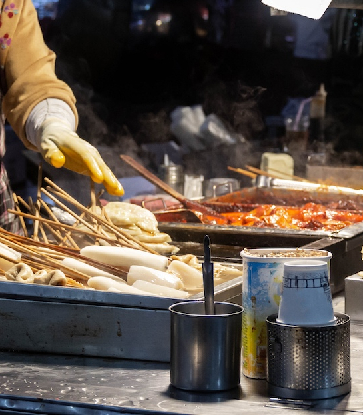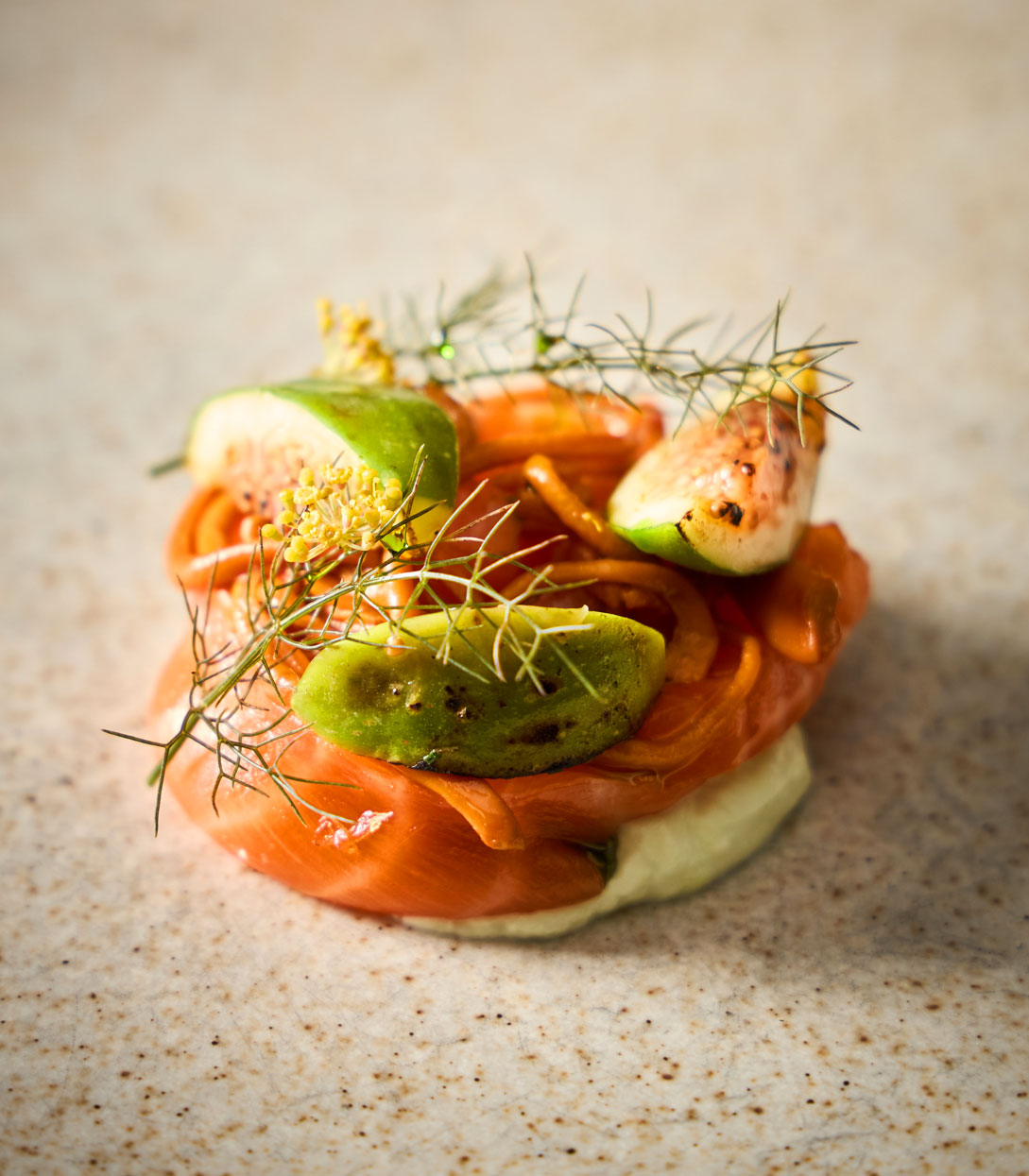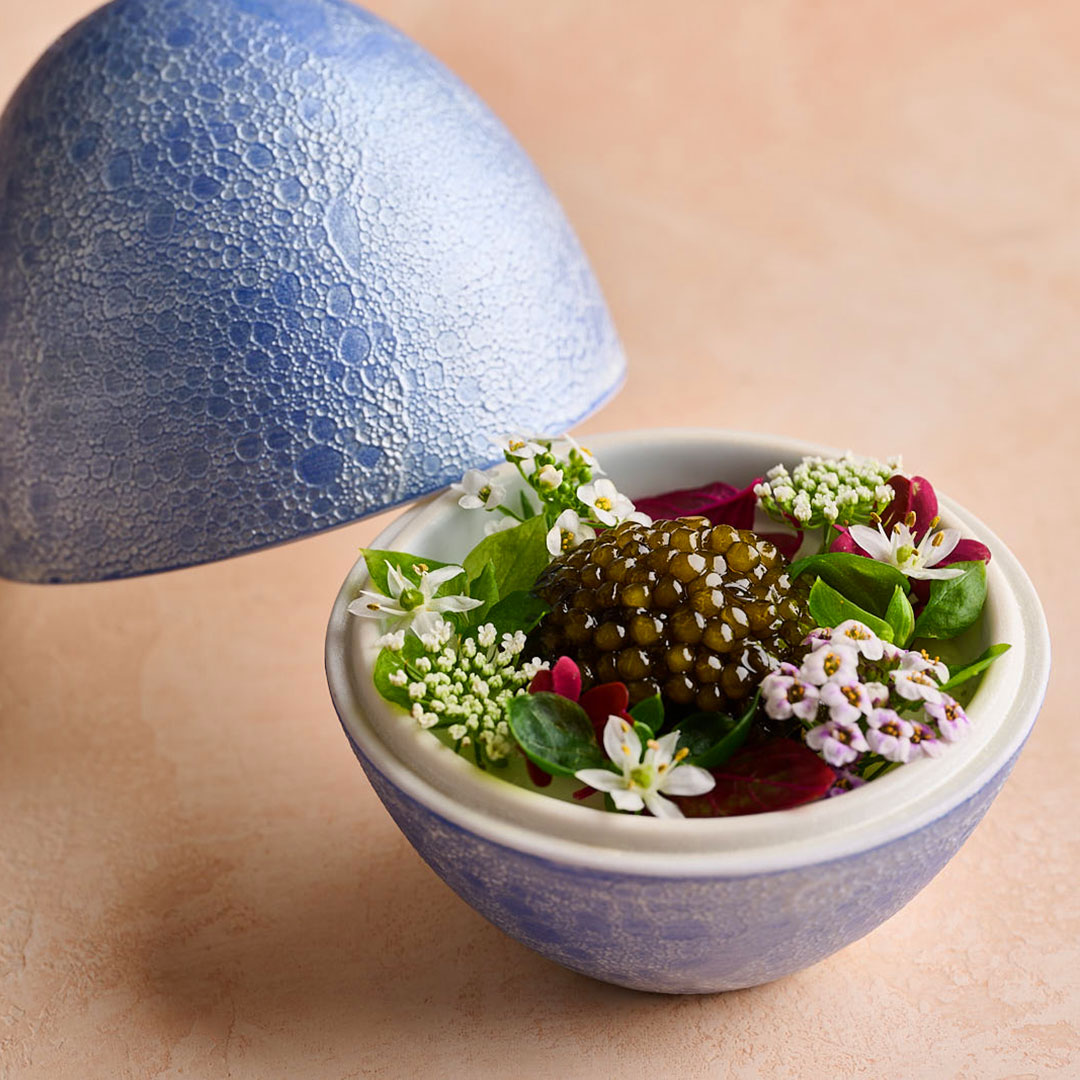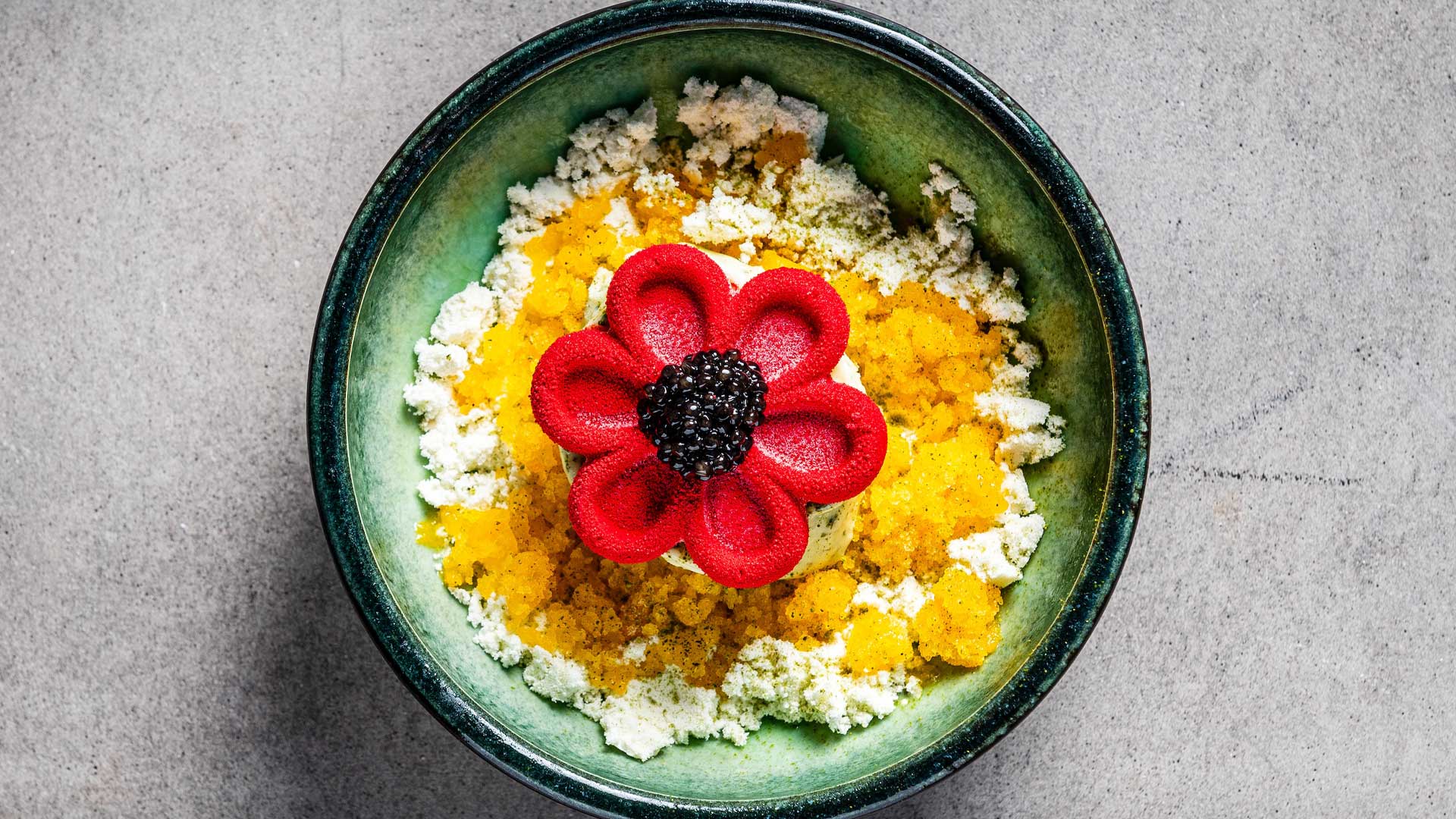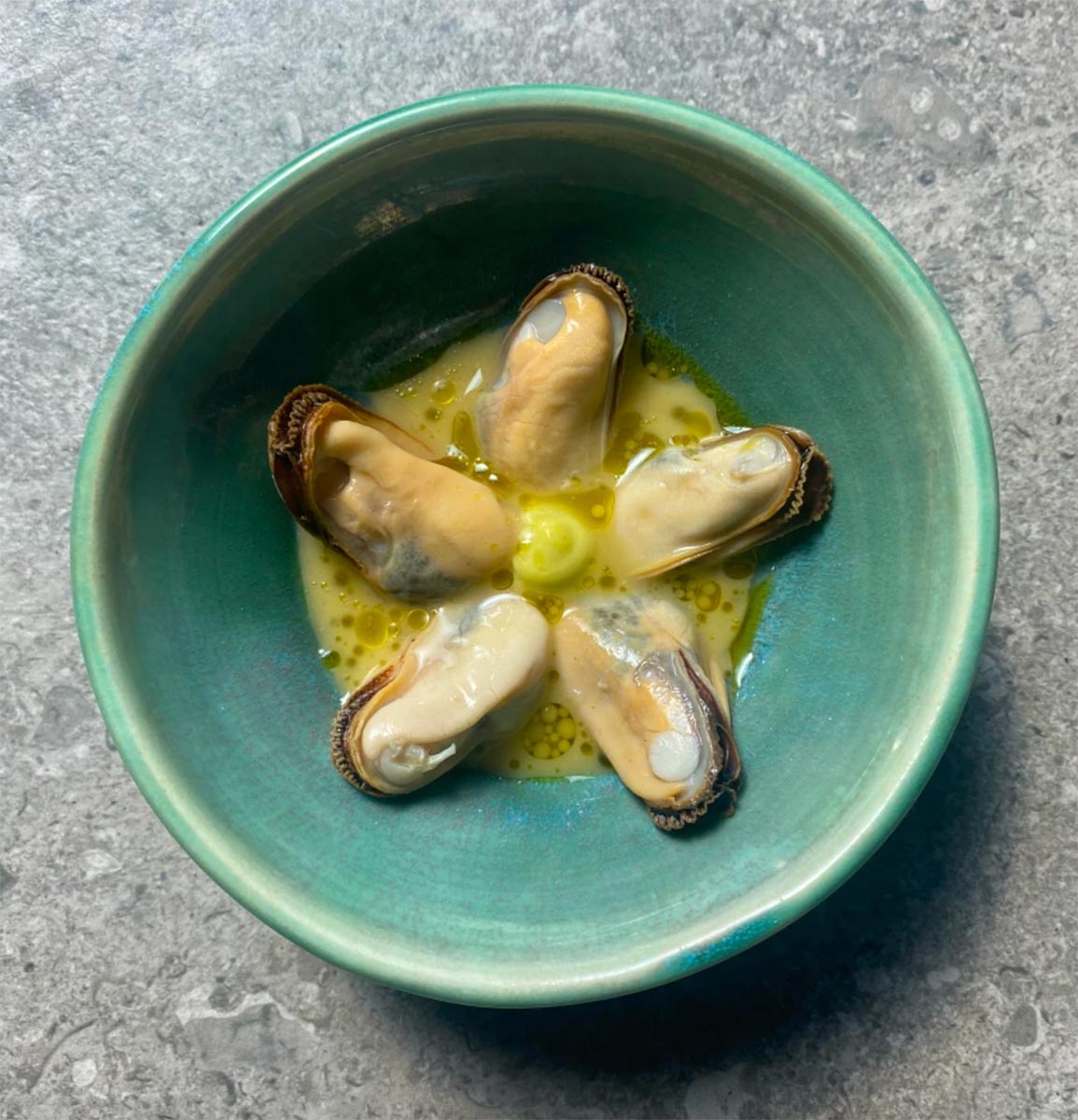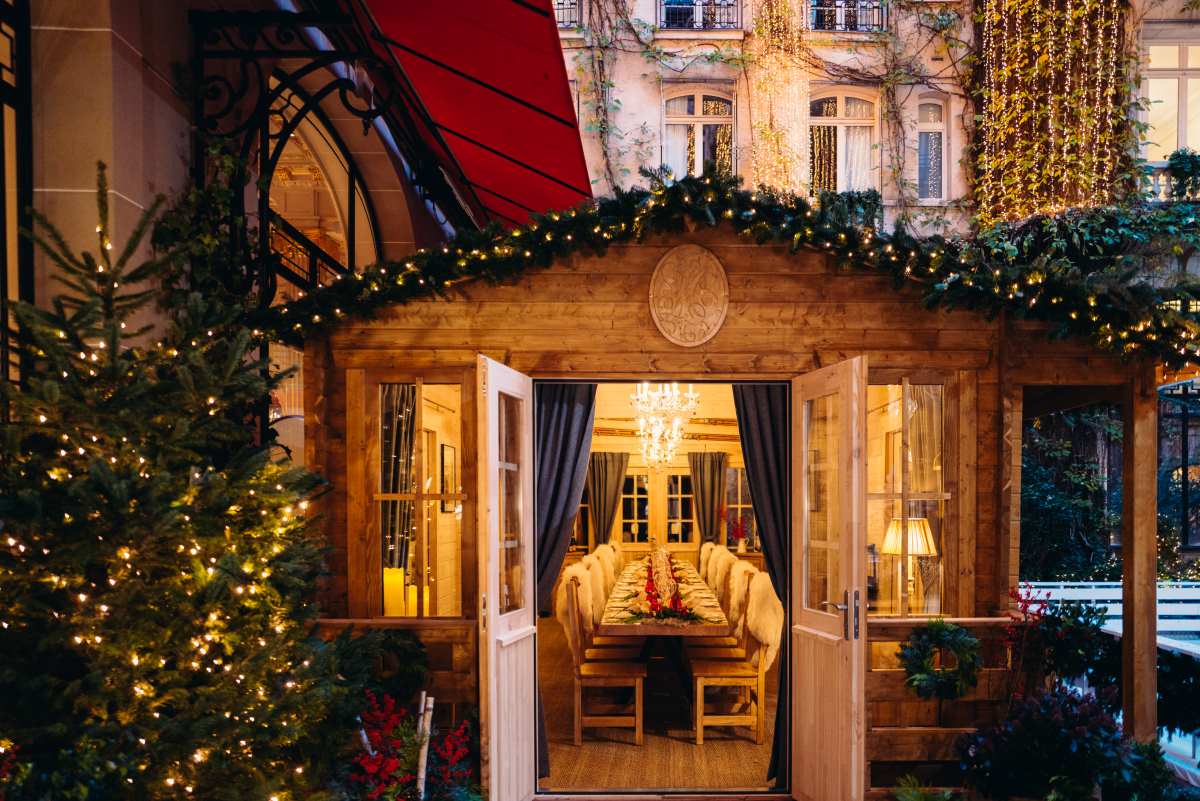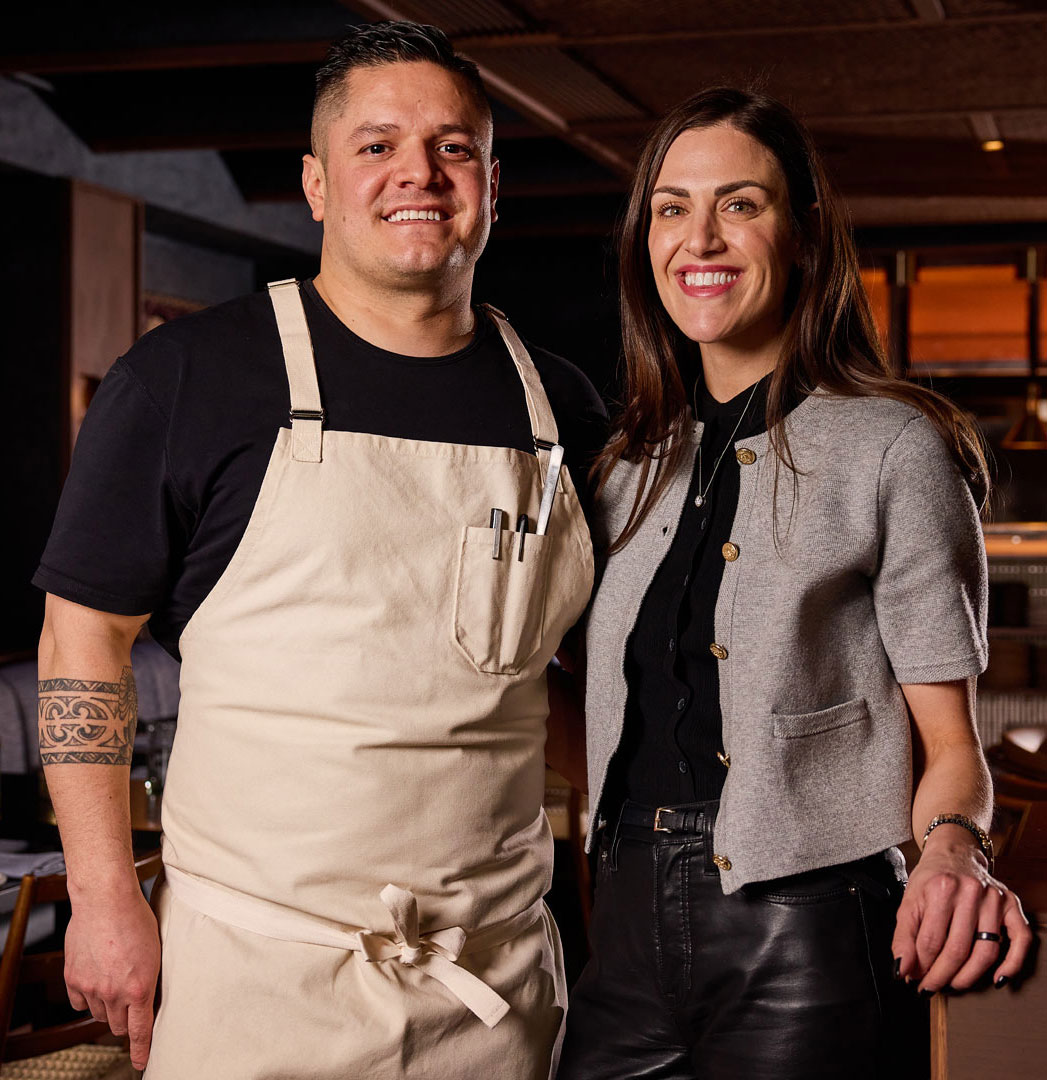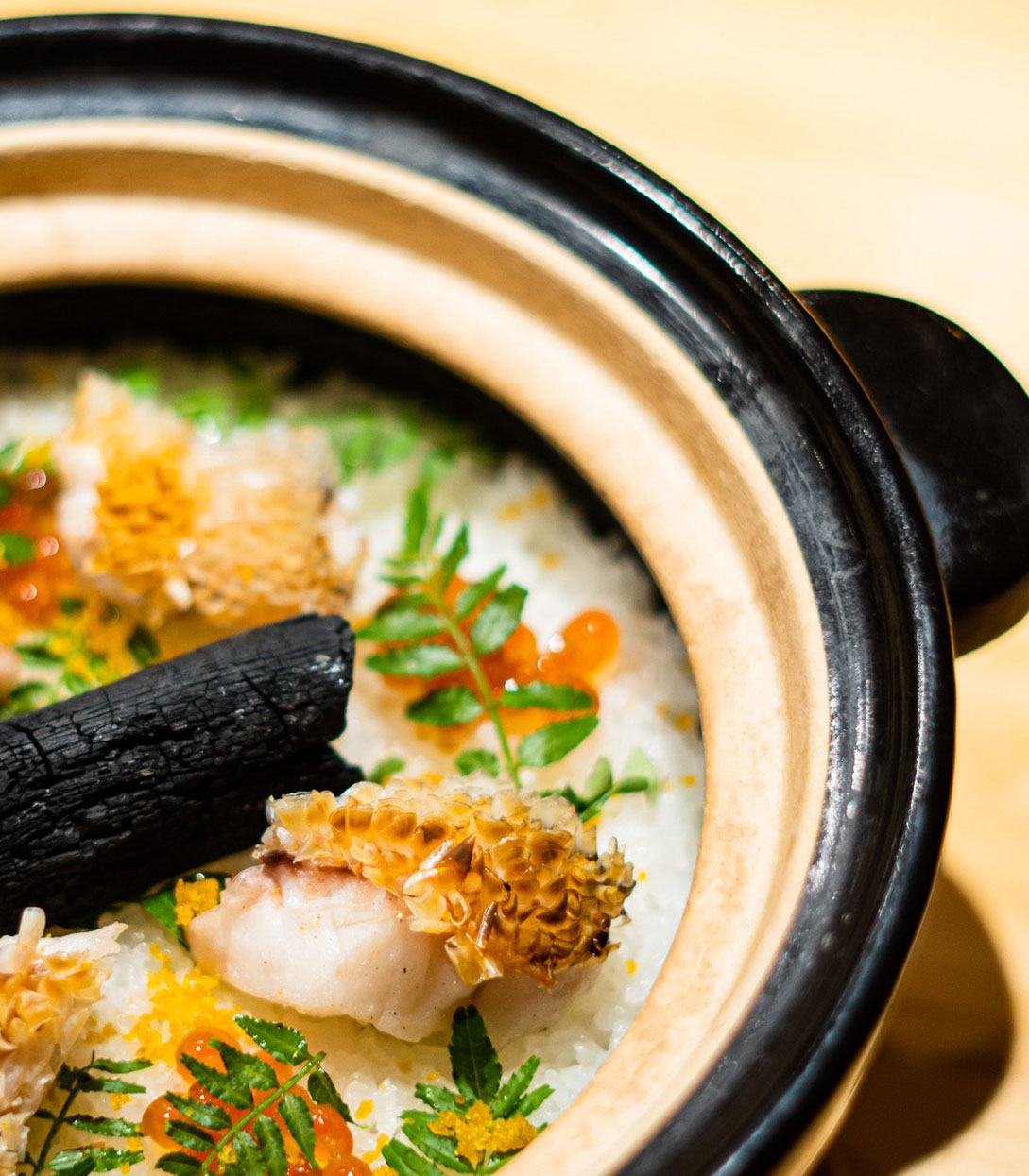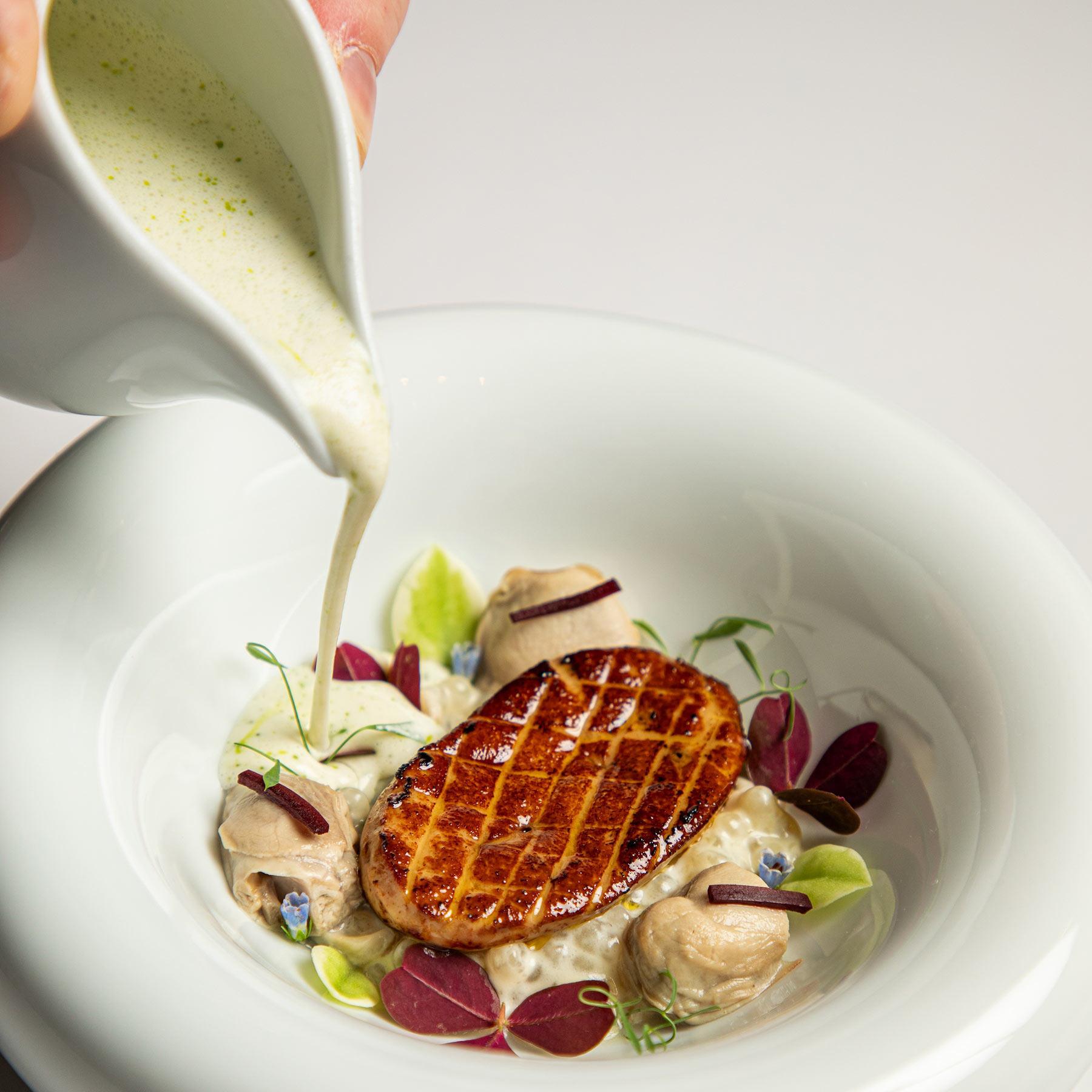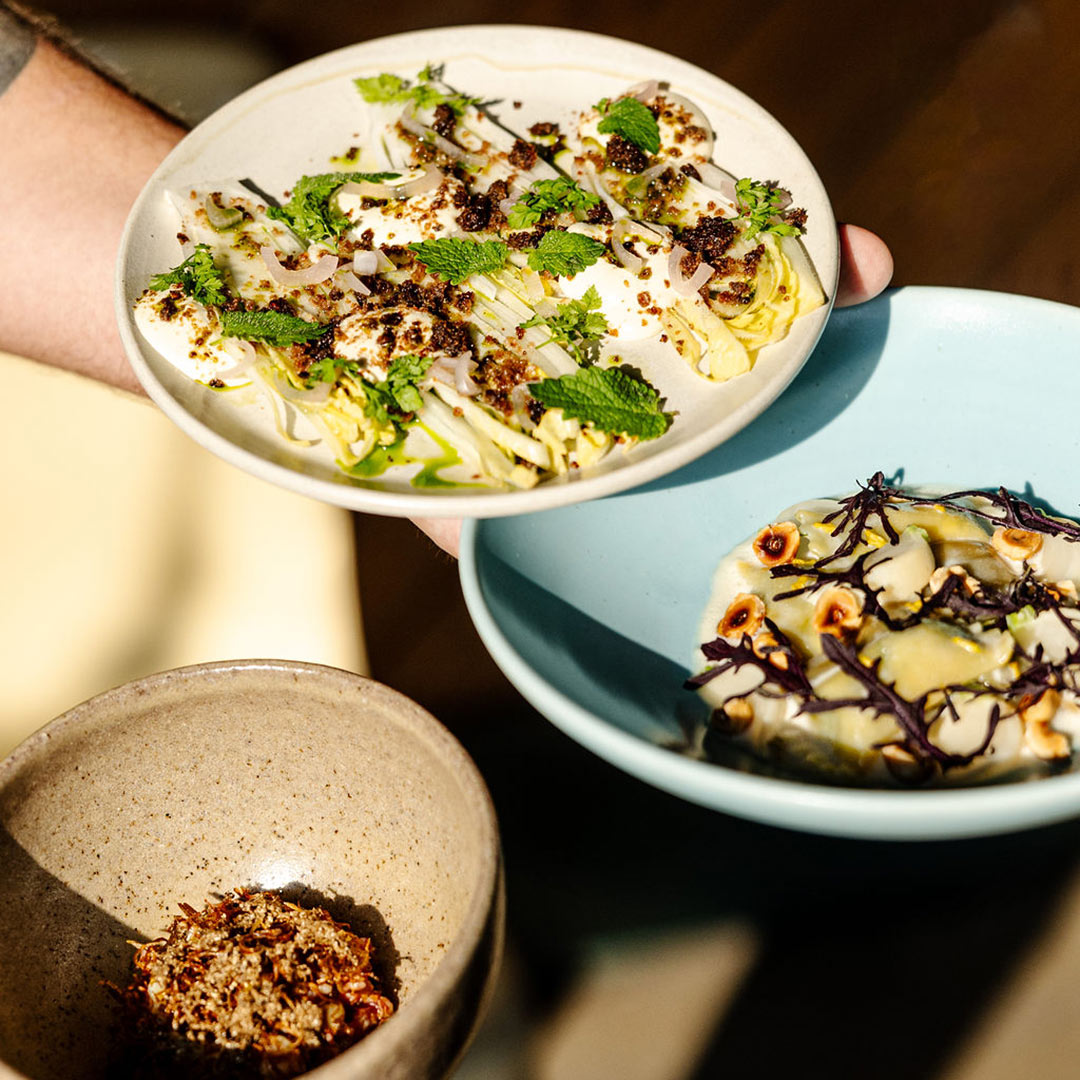Malaysia, known for its multicultural heritage, has a population that comprises mostly Malay, Chinese, and Indian ethnicities. A quality that Malaysia is exceptionally known for is its diverse food culture that emerged from this melting pot of people united in their love for food and a passion for their craft to be passed down through generations.
The diversity and dynamism of the country and its food culture have given rise to a generation of Malaysian chefs that have gone on to make their marks in restaurants across the globe, creating memorable dining experiences that stand shoulder-to-shoulder with the industry’s very best.
As Malaysians celebrate Merdeka Day this 31st of August, we commemorate the many talented Malaysians in MICHELIN-Starred restaurants around the world, whose ambition, tenacity, and hard work got them to where they are today. These notable chefs and owners tell the MICHELIN Guide how their Malaysian roots allows them to boldly push boundaries in bridging modern cooking methods with Asian influences.
Also, with the launch of the inaugural MICHELIN Guide in Kuala Lumpur and Penang, four restaurants are recognised with a MICHELIN Star: Au Jardin (Penang), Auntie Gaik Lean's Old School Eatery (Penang), DC. by Darren Chin (Kuala Lumpur), and Dewakan (Kuala Lumpur).

Toraik Chua
Head Chef, Zén, SingaporeThree MICHELIN Stars, MICHELIN Guide Singapore 2022
For Chua, his post at three-MICHELIN-starred Zén has been his first and only job in Singapore. The opportunity came while he was staging at Frantzén in Stockholm during the winter of 2018. "André Chiang had just announced the closure of Restaurant André, and the Frantzén group was planning to set up an outpost at Singapore. I was offered the opportunity then — obviously I took it without thinking twice!" he says. Prior to Frantzén, Chua staged in Copenhagen, specifically at three-MICHELIN-starred noma, where he also became chef de partie afterwards.
"I am proud to be Malaysian. Our country has been developing and growing in so many aspects over the years — and it inspires me to strive for betterment too, so that I can make my country proud," shares Chua. Hailing from Kedah, in the northern part of Malaysia, the young chef waxes poetic about his homeland and its abundance in sprawling paddy fields, natural produce, and fishing ports.
"Growing up, my favourite local dishes include a comforting herbal bak kut teh, grilled sambal skate wing, and Hokkien prawn noodles packed with deep umami flavours. Hokkien mee is also something from our family kitchen. My fondest food memories are that of family gatherings at my late grandmother’s house. Our extended family would meet every Friday, and there would be a feast prepared from scratch by the aunties, from Hokkien mee to laksa and bak kian (deep-fried spiced meat rolls, also known as Ngo Hiang)," Chua fondly recalls. "My pride in Malaysian food culture and heritage comes through in my constant reminder to my fellow Singaporean colleagues that Malaysian food is way much tastier. This is a fact, by the way!" he says with a laugh.
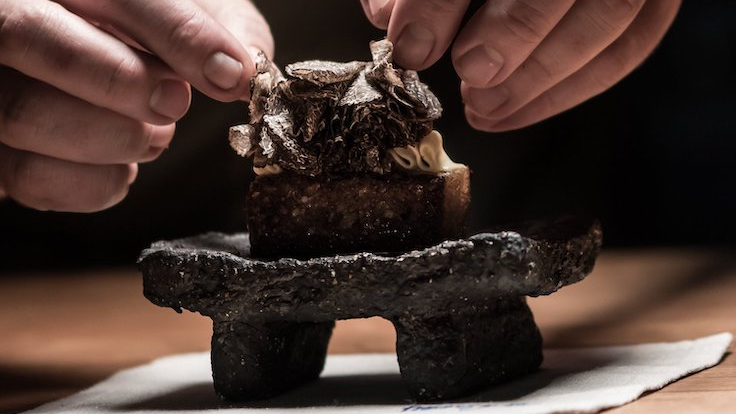
Chua describes Zén's culinary style as "Nordic Kaiseki", where one can expect Nordic ingredients along with Japanese's produce, "all executed to present flavours that are intrinsically Scandinavian," he describes. Chua and the team at Zén are always on the hunt for new flavour combinations and new ingredients. "Being based in Singapore allows us to explore some ingredients from the Malaysian region — such as pandan, which we use in our juice infusion, and Sarawak pineapple, which made an appearance on our previous menu. Our nutmeg is sourced from Penang as well," he shares.
"Malaysia also has a wonderful bounty of natural produce. I cannot stress enough how excited I am whenever I visit the farmer markets in Malaysia to learn and taste the native and wild herbs/fruits foraged by the native folk. It’s something truly unique, rustic, and gives you such a strong sense of how we are all connected to nature. It is something you cannot experience through working in a highly developed cosmopolitan city," he expresses.

Levin Lau
Executive Chef, Odette, Singapore
Three MICHELIN Stars, MICHELIN Guide Singapore 2022
Levin Lau grew up in a small village in Terengganu, along the coast of Malaysia, and his appreciation for local produce started at a young age while helping at his father’s vegetable stall in the local markets. At home, he realised his love for cooking, and the joy that came from cooking for others, through time spent with his mother and grandmother in the kitchen. His favourite childhood dishes were Malay-style Fish Curry and Braised Pork Belly with Taro.
“I decided to pursue culinary arts as it was my dream career.” he says. Upon his graduation from Shatec Culinary School in Singapore, he landed his first professional job at Hilton Hotel Singapore. Always striving to perfect his craft, he joined MICHELIN-listed St. Regis Hotel, one of the most luxurious hotels in Singapore. This was where Lau first met Odette chef Julien Royer in 2007. Since then, Lau has worked closely with Royer and has been an integral member of Odette's team since its inception in 2015.

One dish that represents Lau's experimental style is the Bafun Uni, which he created for Odette's fifth anniversary. “The dish was a reimagined version of one of Odette's iconic signatures, harmonised with a rich, creamy uni offset by smoked iwashi (sardine) tartare. There is crunch from a piquant finger lime and Nashi pear, topped with a cloud of uni-infused mussel foam and Kristal caviar.” he says. It is inspired by his deep respect for seasonal produce and is an ode to both Asian and French cuisines.
For Lau, his Malaysian background enabled him to harmoniously integrate Asian spices, techniques, and flavours with the intricacy of French fine dining. “Being born and raised in a multiracial country helps me understand various races and cultures easily. It is important always to remember our roots and respect native ingredients. As a Malaysian with Chinese roots, I am proud to bring my experience with Asian ingredients and cooking styles to the kitchen,” he says.

Mano Thevar
Chef-owner, Thevar, SingaporeTwo MICHELIN Stars, MICHELIN Guide Singapore 2022
A self-taught chef who has never worked in an Indian restaurant before, Mano Thevar's aim at his eponymous restaurant is to bridge the heritage flavours of his Indian roots with modern European techniques. “Thevar is all about pushing the limits and encapsulating Indian flavours in the most unexpected ways,” he shares.
Growing up in Penang, he fondly recalls how his father was the one who encouraged him to explore the diverse flavour profiles that now contribute to his cooking philosophy. “My dad would take my sister and me to the best places to eat. They were not necessarily fine-dining establishments, but honest and good food. Like Nasi Kandar, Char Koay Teow with wok hei, of course. The satisfaction that a good meal can bring you is just priceless,” he adds. These memories inspired him to envision owning a restaurant someday that could bring smiles to people’s faces.

Shortly after his father’s passing in 2009, Thevar set out to pursue his passion for food professionally. He landed his first kitchen job at now-defunct Guy Savoy in Singapore, followed by stints at two-MICHELIN-Starred restaurants Pure C in the Netherlands and Waku Ghin in Singapore.
Driven by a determination to understand his roots better, Thevar embarked on a month-long trip to India. He started in New Delhi, and then travelled to the south, spending more time in the Chettinad region, where his grandparents grew up. This culminated new inspiration for boundary-bending creations at Thevar, such as the signature crab curry rice, which features luscious crab meat with crispy, toasted shredded coconut over spiced, fluffy basmati rice. It draws from several traditions, such as his mother's crab curry and his love of nasi kerabu, as well as highlighting his Malaysian roots with elements from Indian, Malay, and Peranakan cultures. Additionally, throughout the pandemic, it was this dish that kept diners coming back for more — and kept his business afloat, Thevar shares.

Lee Kok Hua
Executive Chef, Hakkasan, Abu DhabiOne MICHELIN Star, MICHELIN Guide Abu Dhabi 2023
A Malaysian chef from the Hakkasan group is Lee Kok Hua, who stands as executive chef of one-MICHELIN-Starred Hakkasan Abu Dhabi.
Hailing from Johor Bahru, Lee waxes poetic about his home country and favourite dish. "Malaysia is a multiracial country with many types of cuisines. My favourite dish from Hakka descent is known as Pounded Tea or Thunder Tea Rice or 'Lei Cha'. 'Lei Cha' places a special meaning to me, as upon every family gathering, my beloved mother will prepare this signature dish of hers. The aroma from the variety of vegetables, the crunchiness from the roasted peanuts, and lastly, the umami flavours from the dried shrimp all come together in this dish. Once you have tried it, you will never forget how it tastes."
Prior to his current post, Lee was executive sous chef at MICHELIN-Starred Hakkasan Hanway Place in London. Having entered the industry at only 17 years old, Lee brings with him over 33 years of culinary experience. "I’m honoured that I am able to continue my career development at the newly launched branch of Hakkasan in Abu Dhabi. Hakkasan supported my career development with a well-equipped kitchen for our creation of new dishes, and a working environment where I can focus as a chef," he says. With his breadth of knowledge and mastery in the kitchen, Lee brings honour to the Hakkasan brand with creations such as Peking duck and Chilean sea bass with honey.
According to our MICHELIN Guide Inspectors, celebrated Cantonese classics define the Hakkasan Abu Dhabi menu. On Saturday lunchtimes, the anticipated dim sum are all prepared with enormous skill. There are also plenty of lighter dishes available, so don’t be surprised to see quinoa rather than jasmine rice. The restaurant service staff is knowledgeable and engaging, with the atmosphere being vibrant and buzzing.
However, if there is one dish at Hakkasan Abu Dhabi that Lee says describes his Malaysian heritage the most, it would have to be the Satay Chicken. "Malaysia is known for its multiracial (Chinese, Malays, Indians, and indigenous peoples) community, and our Satay Chicken at Hakkasan Abu Dhabi uniquely combines the culinary practices from the Chinese, Malays, and Indians," he explains.
When it comes to his culinary philosophy, Lee says: "Honestly speaking, to me, cooking is not just about the act itself and the plating that follows. Cooking is more of a bridge between the chef and the customer. The chef communicates through the ingredients on the plate without any verbal communication. As a chef, efforts, passions, and emotions are passed down to the customer through the food created. What I enjoy the most as a chef is the moment where the customer expresses his or her enjoyment about the meal I prepared; a simple nod of the head or an even a small smile expressing 'this dish is delicious'. That will be enough for me."

Kwen Liew
Chef-owner, Pertinence, ParisOne MICHELIN Star, MICHELIN Guide France 2022
Born in Kuala Lumpur, Kwen Liew never had the ambition of being a chef. A penchant for cooking videos turned into stints at professional culinary courses at Le Cordon Bleu in Sydney and Bangkok, which cemented her dream of owning her own restaurant in France. “The most challenging place to excel in French cuisine is in France itself, so I knew I had to move to Paris,” she says.
To turn this dream into reality, Liew pursued a pastry diplôme at France's Ecole Nationale Supérieure de Pâtisserie. She then interned at a few restaurants in Paris and Singapore before finally returning back to Paris after being persuaded by a former colleague named Ryunosuke Naito.

After gaining the experiences they needed and after 18 months of conceptualising, Liew and Naito opened Pertinence, an intimate 14-seater restaurant. Having a restaurant of their own allowed this chef-duo to create dishes that reflected their training in classical French and Japanese cuisines, such as the white asparagus on a bed of calamansi mousseline, or wild-caught sea bass paired with curry sauce.
Liew credits Malaysia's rich cultural diversity and a complex medley of flavours and spices for influencing her approach to cooking, which involves harmonising various textures and tastes in a dish. Being an adventurous chef, Liew would often incorporate Asian ingredients like kumquat or Chinese herbs, such as dang gui (angelica root), in her creations.
Within the first year of opening, Pertinence was recognised with one MICHELIN Star in February 2018.

Andy Toh
Executive Chef, Hakkasan, DubaiOne MICHELIN Star, MICHELIN Guide Dubai 2022
Another Malaysian chef from the Hakkasan group, but this time in Dubai, is Penang-born Andy Toh, who entered the culinary industry from very humble beginnings. He began working after school at a hawker stall serving classic Western fare such as steak and chicken chop when he was 13 years old.
At home, he credits his mother's cooking for piquing his interest in cooking and eating. His favourite foods from his early years are Assam curry fish, and sambal dried shrimp, which are some of his signature recipes at one-MICHELIN-Starred Hakkasan in Dubai.
When Toh turned 18, he seized the first chance to work abroad when the opportunity presented itself. Toh's brother-in-law was a dim sum chef in Hong Kong, and Toh followed him there. Over the next decade, he traversed from Singapore to Taiwan, Thailand, and Hong Kong and accumulated numerous food adventures and a range of experiences from food manufacturing to contemporary dining, enabling him to have an extensive understanding of Asian cuisine.
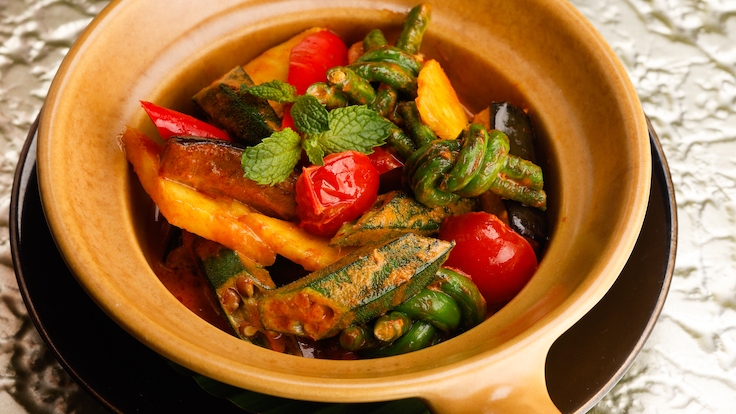
To quell his long-standing fascination with the Middle East region, Toh uprooted to Dubai in 2011 and started working at Hakkasan, a modern Chinese restaurant from London that has ten locations worldwide. In 2016, Toh was promoted from Senior Sous Chef to Executive Chef, and under his leadership, the restaurant earned its first MICHELIN star in the inaugural edition of the MICHELIN Guide Dubai in June 2022.
For Toh, a chef “is an artist who creates beauty in a dish.” When asked which dish at Hakkasan in Dubai best represents his Malaysian roots, he says, “The Assam seafood toban (ceramic plate/pot). This tangy and slightly spicy dish represents me and my Penang roots. Malaysians love all things spicy,” he says.
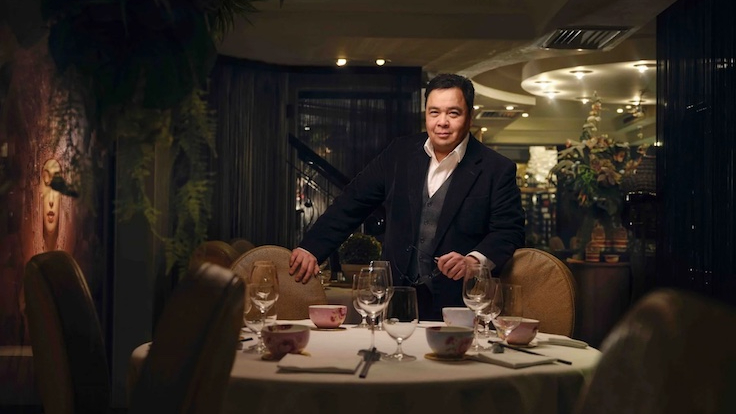
Bernard Yeoh
Owner, Kai, LondonOne MICHELIN Star, MICHELIN Guide United Kingdom 2022
"Modern Chinese restaurant Kai was born out of a cause to showcase Chinese culture to the world and challenge the perception of what a Chinese restaurant experience is," says its Malaysia-born owner Bernard Yeoh. “In the 90s, Chinese restaurants in London were not highly regarded. We’ve had great experiences and vast varieties offered in Chinese restaurants back in Malaysia and Singapore. The question was whether we could elevate the Chinese dining experience in London — whether with interior design, menu, hospitality, and even down to the chopsticks,” he explains.
Calling both London and Kuala Lumpur home, Yeoh didn’t start out as a restaurateur despite growing up in a family that specialised in the restaurant business. A former law student and an ex-Olympian representing Malaysia's national shooting squad, Yeoh was fuelled by a desire to elevate the Chinese restaurant experience in London and took the courage to plunge into the restaurant industry in 1993.

”We are fiercely protective of our heritage, but at the same time, we are never fearful about innovating,” he says of his Malaysian roots. The menu's presentation is case in point. In contrast to the convention in Chinese restaurants, desserts are highlighted at the top of the menu at Kai. In particular, the Durian & Vanilla Soufflé with salted caramel is inspired by his Malaysian roots and the challenge of presenting a highly polarised fruit in a way that a global audience will find appealing and grow to love.
Longevity thriving in London's fast-moving restaurant scene is no easy feat, but next year will mark Kai's thirty years in business. Kai gained its first MICHELIN star in 2009, the first Chinese restaurant in London to do so. It has since maintained its star for 13 consecutive years, a feat Yeoh attributes to sincerity in preserving the culinary pride of Chinese heritage and “an insatiable appetite for innovation with purpose”. To feed this "insatiable" appetite, Yeoh plans to launch an offshoot of Kai in Dubai by the end of the year, he reveals.






